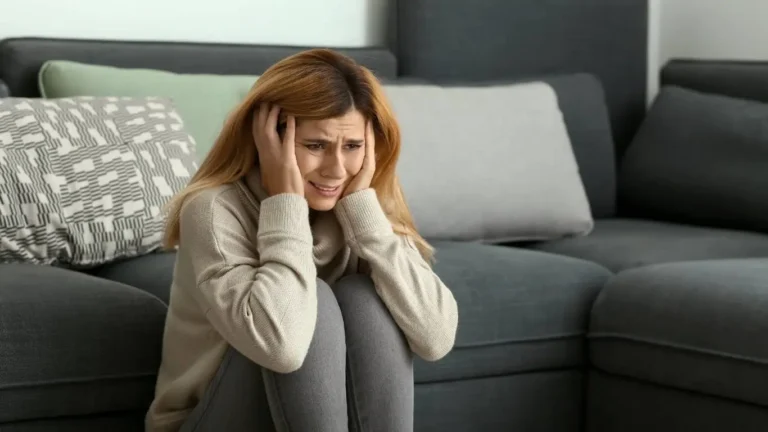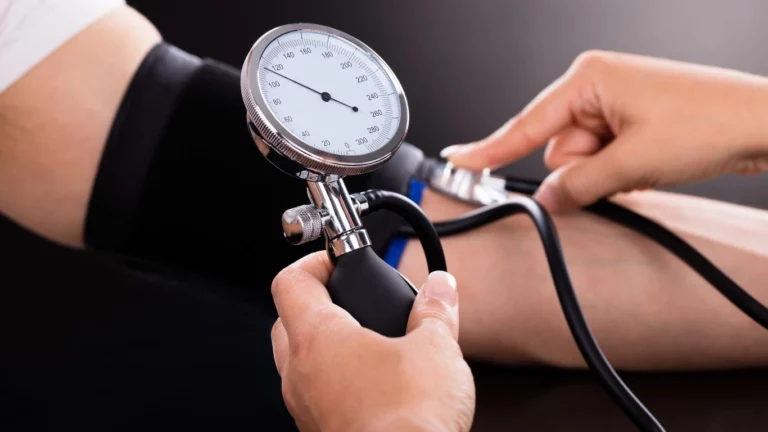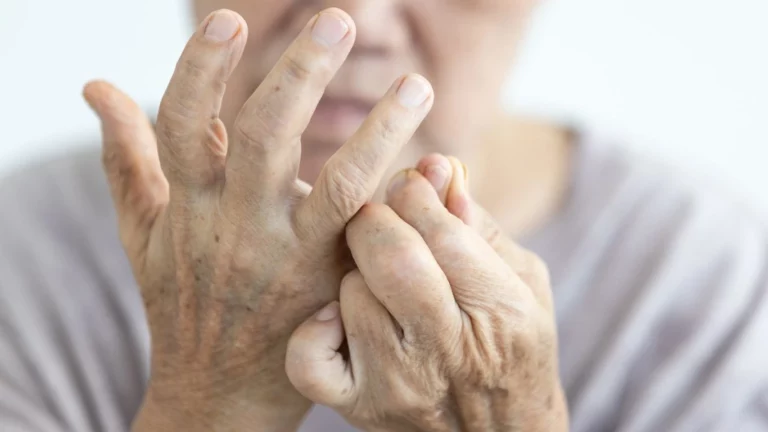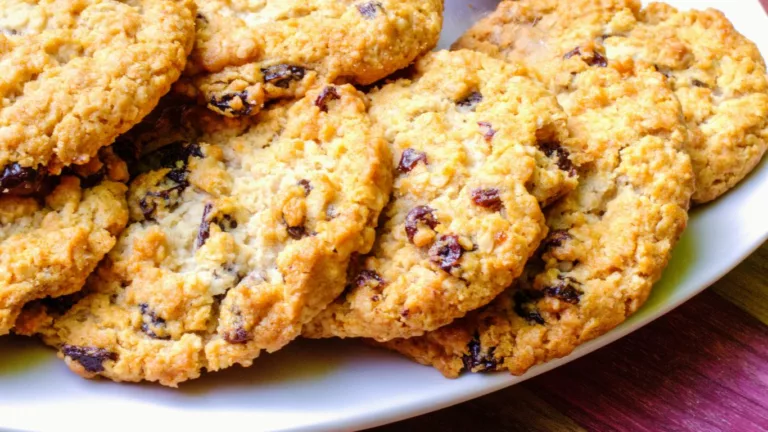How to Stop GERD and Excessive Nighttime Burping for Better Sleep
If you’ve ever found yourself waking up in the middle of the night with a burp that feels like it brought your dinner back for a second round, you’re not alone. As someone who’s worked closely with patients in a gastroenterology clinic, I’ve seen how GERD and excessive nighttime burping can really mess with your sleep, your digestion, and honestly—your peace of mind. Let’s talk about what’s really going on when your stomach decides to put on a midnight show.
What is GERD, and Why Does It Get Worse at Night?

GERD—short for gastroesophageal reflux disease—is that annoying condition where stomach acid creeps back up into your esophagus. Normally, your lower esophageal sphincter (that little muscular ring that’s supposed to keep things in check) closes tightly after food enters your stomach. But in GERD? Not so much. It relaxes at the worst possible times—like when you’re trying to sleep.
And that’s where the burping comes in. Excessive nighttime burping can be a signal that acid is bubbling up and creating gas pressure that escapes upward. It’s not just uncomfortable—it can disrupt your whole sleep cycle.
The Gravity Factor: Why Lying Down Makes It Worse
One of the most common things I heard patients say was, “I felt fine all day, but the minute I laid down, boom—burping, acid, discomfort.” That’s because when you lie flat, gravity’s no longer helping keep that acid where it belongs. It’s kind of like laying a soda bottle on its side—it doesn’t take much pressure for it to leak out.
- Horizontal position = less pressure control
- Slower digestion during sleep hours
- Stomach acid lingering longer than it should
Common Triggers That Set Off the Nighttime Burping Fireworks
Let me tell you—based on what I’ve seen firsthand, there are a few common culprits that almost always make GERD symptoms worse, especially at night. And yep, they’re probably the things you don’t want to give up. I totally get it.
- Late-night snacks – Especially spicy or fatty foods. That 10 PM taco might taste amazing but trust me, it’ll come back to haunt you.
- Caffeine – Coffee lovers, I’m looking at you. It relaxes the lower esophageal sphincter just enough to let acid slide in.
- Carbonated drinks – Yep, soda and sparkling water might be fun to sip, but they load your gut with gas that needs an escape route—usually upward, in the form of burps.
Understanding the Burping: What’s Really Going On in Your Gut

Excessive burping isn’t just about swallowing air—it can be your gut’s way of telling you it’s irritated. In people with GERD, burping often stems from acid-induced inflammation or gas trapped in the stomach. It’s not always obvious unless you’ve dealt with it closely, but this kind of burping usually feels different from the harmless kind after a soda.
During my time working in the clinic, we often asked patients to track when the burping happened. Unsurprisingly, the worst episodes were usually between 10 PM and 3 AM—peak hours for digestive slow-down.
Why Your Body is Making So Much Gas in the First Place
We naturally produce gas during digestion, but when your gut’s irritated—like with GERD—it can lead to extra gas production and slower movement through the intestines. Here’s what might be contributing:
- Swallowing air when you eat too fast or chew gum
- Digesting carbs that ferment in the gut (beans, broccoli, etc.)
- Small intestinal bacterial overgrowth (SIBO), which is more common in people with chronic GERD
I remember one patient who said she stopped eating after 6 PM, thinking it would help. It did… sort of. But she was still waking up burping at 2 AM. It turned out, even her earlier meals were setting off her reflux—and it took a full day for the effects to show up.
GERD and Sleep Quality: The Vicious Cycle

Now, here’s the kicker—GERD doesn’t just disturb your sleep. Poor sleep actually makes GERD worse. It’s a frustrating loop: acid reflux wakes you up, you don’t sleep well, and the next day your digestive system is sluggish, which ramps up the reflux again.
Plus, when you’re tired, you’re more likely to grab something quick and acidic—coffee, orange juice, even chocolate—which just fuels the fire.
Signs Your Sleep is Being Interrupted by GERD and Burping
- Waking up with a sour taste in your mouth
- Burping or feeling bloated while still lying in bed
- Hoarseness or sore throat in the morning
- Feeling like something’s stuck in your throat (aka globus sensation)
If any of that sounds familiar, it might be time to look deeper into your nighttime habits and start making some tweaks. In the clinic, these little details made a huge difference for our patients.
How to Reduce Nighttime Burping from GERD: Practical, Real-World Tips

Alright, let’s get into what really helps when GERD and excessive nighttime burping are cramping your style (and your sleep). I’ve sat in on hundreds of patient visits where we talked through these strategies, and I can tell you—not everything works for everyone, but when you find your groove, the relief can be life-changing.
1. Elevate Your Head (But Not Just with a Pillow)
This one’s a classic for a reason. But here’s what most people get wrong: tossing an extra pillow under your head just bends your neck—it doesn’t lift your esophagus above your stomach. What you actually need is a slight incline from your waist up.
We used to recommend wedge pillows or even adjustable beds. A small incline (6 to 8 inches) can help keep acid where it belongs. One of my patients swore by stacking yoga blocks under her mattress corners. Whatever works, right?
2. Time Your Meals Wisely
This was a game-changer for so many patients. The goal? Give your stomach time to empty before you lie down. I usually told people: no meals or big snacks within 3 hours of bedtime. Light snacks like a banana or a small handful of almonds were okay for some folks—but fatty, spicy, or acidic foods? Big no-no after 6 or 7 PM.
3. Keep a Food Diary (Yes, Really)
I know it sounds tedious, but I can’t tell you how many times this helped people figure out their unique triggers. GERD isn’t one-size-fits-all. For example, one woman had terrible reflux after eating garlic—even in tiny amounts. Another guy couldn’t touch chocolate after 5 PM without burping half the night.
Track what you eat, when you eat it, and how your symptoms act up overnight. Over a week or two, you’ll start seeing patterns. Trust me—your gut has a memory.
When Lifestyle Changes Aren’t Enough: Medical Support Matters

Now, let’s be real—not every case of GERD and nighttime burping can be solved with a wedge pillow and some peppermint tea. If lifestyle tweaks aren’t cutting it, it’s time to bring in the big guns. That’s where I saw patients really benefit from a medical team that took them seriously.
Proton Pump Inhibitors (PPIs) and H2 Blockers
Medications like omeprazole, lansoprazole, and famotidine are often the first line of defense when lifestyle alone doesn’t do the trick. These reduce the amount of acid your stomach produces—less acid means less irritation, and less pressure forcing burps upward.
But here’s the catch (and something I always told patients): these aren’t magic pills. They work best when paired with good habits, and they’re not meant for long-term use without supervision. Some folks stay on them longer, but only under a doctor’s guidance.
When to See a Specialist
If you’re still burping excessively at night, even after changing your diet and trying meds, it might be time for testing. I remember one patient whose symptoms weren’t classic GERD—it turned out she had delayed gastric emptying (gastroparesis). Another had a small hiatal hernia that wasn’t found until we referred him for an endoscopy.
- Still burping at night after 6–8 weeks of treatment?
- Losing weight without trying?
- Feeling like food gets stuck or reflux is worsening?
If you said yes to any of those, a visit to a gastroenterologist is definitely worth it.
GERD-Friendly Nighttime Habits That Actually Help

Over time, I started collecting all the little routines patients swore helped them sleep better. Some were backed by science, some were just based on what felt right—but honestly, if it works and doesn’t hurt, why not?
- Drink warm water with a splash of lemon—yes, even though citrus is acidic, the dilution can help some people stimulate digestion and reduce bloating.
- Gentle movement after dinner—a slow walk around the block or even light stretching can encourage digestion and reduce pressure buildup.
- Try herbal teas—like chamomile or licorice root (but avoid peppermint—it relaxes the LES too much for GERD folks).
- Practice deep breathing—yep, stress and anxiety make reflux worse. A few minutes of calm breathing before bed goes a long way.
Quick Tip from the Clinic: The “Left Side Lie” Trick
One small habit that made a surprisingly big impact for patients? Sleeping on your left side. The shape of your stomach and the way it connects to your esophagus actually makes left-side sleeping the most reflux-resistant position. Right side? Total opposite—it often makes symptoms worse.
One patient called it her “magic side.” Every time she forgot and rolled over, the burping would come back within minutes. So if you haven’t tried it yet, give it a shot. It’s a simple shift that might make your nights a whole lot quieter.
When to Consider More Advanced Treatments for GERD and Nighttime Burping

Sometimes, despite all the lifestyle changes and medications, GERD symptoms stick around stubbornly. If excessive nighttime burping continues to steal your sleep and impact your daily life, it might be time to explore some advanced treatment options. From my experience in the clinic, patients who felt stuck found hope in these next steps—always with close guidance from their healthcare team.
Endoscopic and Surgical Options
When medications aren’t enough and lifestyle tweaks have plateaued, there are procedures designed to strengthen the barrier between your stomach and esophagus.
- Nissen Fundoplication: This surgery wraps the top of the stomach around the lower esophageal sphincter to reinforce it. It’s often recommended for patients with severe GERD or hiatal hernias.
- Endoscopic therapies: Less invasive than surgery, these use tools passed down the throat to tighten or rebuild the valve function.
While these options aren’t for everyone, they can dramatically reduce nighttime reflux and the accompanying burping. I always recommend discussing risks and benefits thoroughly with your gastroenterologist before deciding.
Monitoring and Ongoing Care
GERD isn’t a “one-and-done” kind of diagnosis. Many patients I worked with needed regular follow-ups to adjust treatments or to catch any complications early—like Barrett’s esophagus, a condition where prolonged acid exposure changes esophageal cells and increases cancer risk.
That’s why consistent care is key. Keeping a symptom journal, reporting new or worsening symptoms, and following your doctor’s advice can make all the difference in managing GERD long term.
Myths and Facts About GERD and Nighttime Burping

As someone who has talked to hundreds of patients, I’ve heard my fair share of misunderstandings about GERD and burping. Let’s clear up some of the most common myths so you can navigate your symptoms with confidence.
Myth 1: Burping a lot means you’re eating too much
Fact: While overeating can contribute to burping, it’s not the only reason. GERD causes burping by irritating the esophagus and creating excess gas, regardless of portion size. So don’t beat yourself up for that late-night snack—focus instead on the types of foods and timing.
Myth 2: Only spicy foods cause GERD symptoms
Fact: Spicy foods can irritate the lining of the esophagus, but so can fatty, fried, or acidic foods. Even chocolate, caffeine, and alcohol are common triggers. Everyone’s different, which is why personal food tracking matters.
Myth 3: Antacids alone can cure GERD
Fact: Antacids provide quick relief by neutralizing stomach acid, but they don’t address the root causes of GERD. Long-term management often requires a combination of lifestyle changes, medications, and sometimes procedures.
Final Thoughts on Managing GERD and Nighttime Burping
Living with GERD and the frustrating cycle of excessive nighttime burping isn’t easy—I’ve seen how it can affect energy, mood, and overall health. But the good news? With patience, the right strategies, and support from healthcare professionals, you can regain control.
Remember, small changes add up. Whether it’s changing how you sleep, what you eat, or working with your doctor on medications, each step moves you closer to better nights and less burping-induced wake-ups.
References
Disclaimer
This article is intended for informational purposes only and does not replace professional medical advice, diagnosis, or treatment. If you experience persistent symptoms or have concerns about GERD and nighttime burping, please consult a qualified healthcare provider.

Camellia Wulansari is a dedicated Medical Assistant at a local clinic and a passionate health writer at Healthusias.com. With years of hands-on experience in patient care and a deep interest in preventive medicine, she bridges the gap between clinical knowledge and accessible health information. Camellia specializes in writing about digestive health, chronic conditions like GERD and hypertension, respiratory issues, and autoimmune diseases, aiming to empower readers with practical, easy-to-understand insights. When she’s not assisting patients or writing, you’ll find her enjoying quiet mornings with coffee and a medical journal in hand—or jamming to her favorite metal band, Lamb of God.







